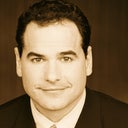There's no question that being close to your ideal body weight improves the results from body lift surgery. It also decreases the potential for complications with this type of surgical procedure. For these reasons, we prefer that patients be within 10% of their ideal body weight at the time of surgery.Unfortunately, reaching an ideal body weight is easier said than done. The vast majority of patients are unsuccessful at losing this additional weight. It's also important to realize that even when patients are overweight, they can potentially benefit from body lift surgery. We, therefore, evaluate every patient on an individual basis.We encourage patients to lose weight before surgery and prefer that their weight be stable for at least six months. In someone who currently weighs 285 pounds, it's not unreasonable to lose 100 to 120 pounds prior to surgery. We realize that some patients will have difficulty losing weight. We, therefore, encourage patients to be in a supervised weight loss program. Even with that help, some patients will be unsuccessful in their effort to lose weight. Even without optimal weight loss, many of these patients will still potentially benefit from body lift surgery.It's important to realize that weight loss following body lift surgery can affect the final result. This could even result in the need for revisional surgery. For these reasons, it's important to thoroughly discuss this issue with your plastic surgeon.








